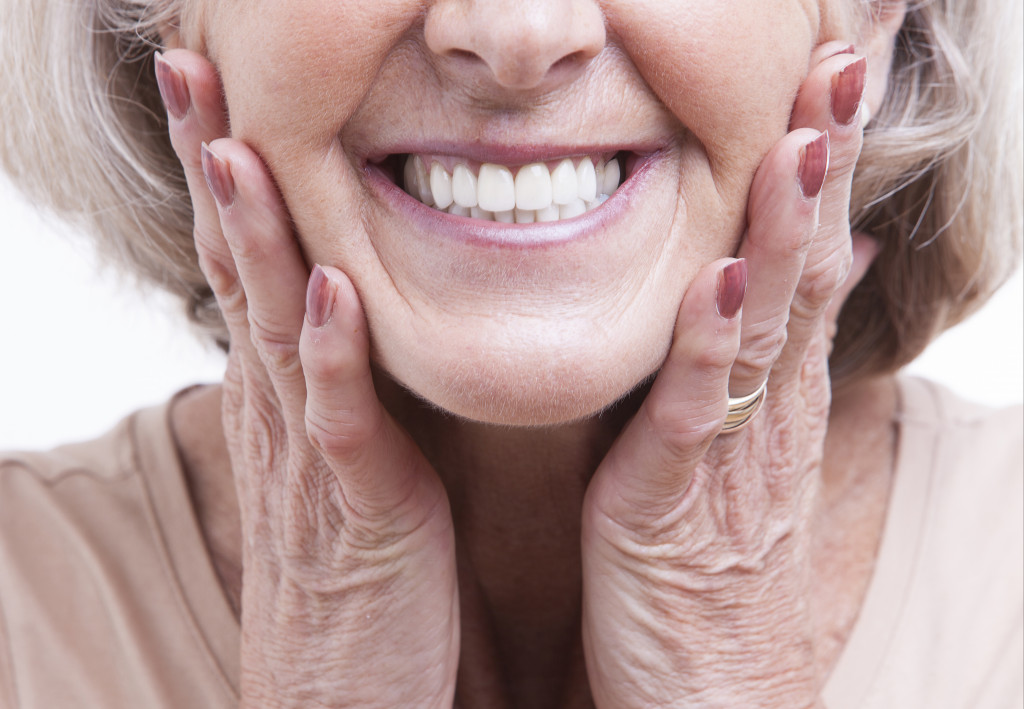Disclaimer: This website provides health information for educational purposes only and is not a substitute for professional medical advice, diagnosis, or treatment. Always seek the guidance of a qualified healthcare provider with any questions you may have.
Seniors need to treat their mouths just as well as they do the rest of their bodies. However, many seniors neglect their teeth because they assume that taking care of them is no longer necessary after a certain age. But good oral hygiene is just as important in later years as it is when you are younger.
Here are seven tips for taking care of your teeth as you get older.
1. Maintain Regular Visits with Your Dentist
Even if you are retired, it is still wise to maintain regular visits with your dentist. Since the risk of dental problems increases significantly after age 50 due to factors like loss of teeth and changes in hormones, it is important for seniors to see their dentist every six months.
At each visit, your dentist will check your teeth, gums, and tongue; clean any plaque or tartar; make sure there are no signs of decay; look at how well dentures fit; look for signs of root canal infection, sores, or tumors on the gums; spot cavities that didn’t show up in X-rays; and look for oral cancer lesions.
2. Make Sure You Get Enough Fluoride
Seniors need to make sure they are getting enough fluoride. A lack of fluoride can cause deterioration of the bones, which affects the teeth.
Your dentist will recommend a supplement if necessary, but you should also drink fluoridated water. Fluoride is found in most toothpaste and mouthwashes as well, so read labels to ensure you are brushing with a product that contains it.
Many bottled waters are also fluoridated, or you can purchase purified tap water that has been treated with fluoride — just make sure this type of water is your only source of drinking water since too much fluoride can be harmful to your health.
3. Get Your Teeth Cleaned Twice a Year

It’s important for seniors to get their teeth cleaned twice a year. Regular cleanings help remove plaque and tartar buildup, which can cause problems such as gum disease and tooth decay over time.
If you are unable to visit the dentist, there are some things you can do at home to reduce bacteria buildup on your teeth between visits. You should brush your teeth at least twice a day with fluoride toothpaste, floss once every day, and clean your dentures regularly.
4. Watch Out for Gum Disease
As you get older, it becomes more important to watch out for gum disease. If not treated, gum disease can damage the tissues and bone that hold your teeth in place and lead to tooth loss.
If you have concerns about gum problems such as redness or swelling gums, tender or painful gums, or bleeding while brushing or flossing, visit your dentist right away so the problem can be diagnosed and treated early on.
5. Keep Track of Your Health Conditions
Certain conditions increase the risk of oral health problems, so keep track of any health conditions you have. If you are diabetic, for example, you should try to avoid getting cuts or scrapes in your mouth because they are likely to heal slowly due to diabetes-related nerve damage.
Seniors with heart conditions should also be careful about visiting the dentist because some medications can affect blood pressure levels during dental procedures.
6. Get Help When Necessary
If you are unable to do some things you used to be able to do, such as flossing or brushing your teeth in a certain way because of arthritis, make sure you get help.
Arthritis in the hands can make it difficult for seniors to brush their teeth properly, for example. If this is the case, ask someone else — you can appoint expert caregivers with the help of senior living advisors — to help you keep your oral hygiene up to par.
7. Eat a Healthy Diet for Good Oral Health
Eating a healthy diet isn’t just important for overall health — it’s important for your dental health as well! To maintain good oral hygiene, make sure you are avoiding sugary foods and drinks. Chew sugarless gum when you want a sweet treat, drink water instead of soda, and cut back on sweets — particularly sticky ones that get stuck in your teeth.
It’s also important to eat a diet rich in calcium and vitamin D, so your bones stay strong throughout the aging process. This will help keep plaque buildup to a minimum because calcium-rich foods prevent plaque from adhering to teeth — just be sure not to overdo it with cheese or other dairy products because they can lead to tooth decay.
Maintaining good oral hygiene is important at any age, but it’s especially crucial for seniors. By following these seven tips, you can keep your teeth healthy and free of problems such as gum disease and tooth decay.




